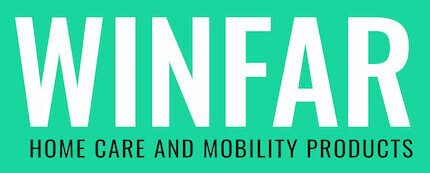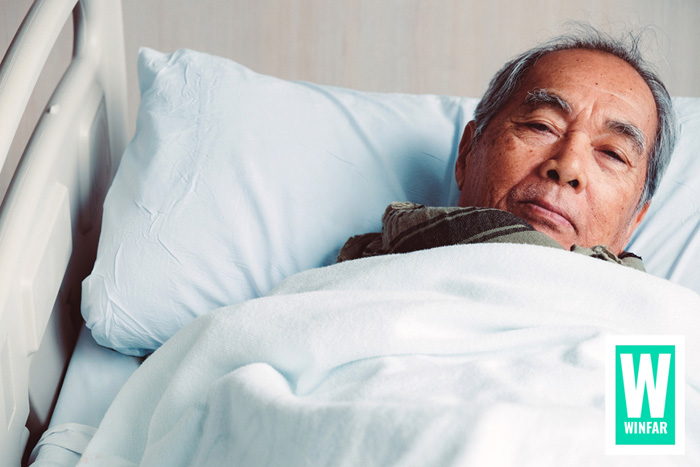Whether it’s caused by chronic illness, advanced age, disability, or injury, being bedridden comes with a variety of challenges – and none more so than the maintenance of personal hygiene. The importance of good hygiene cannot be underestimated. Regardless of circumstances. Just consider for a moment how you feel after a visit to the hairdresser, or a shower after a long hot day. Feeling clean has a powerful impact on both our mental and emotional health – how much more so for those in a position of dependence, with limited mobility.
So, how do you ensure the health and hygiene of someone who is bed-bound?
Here are 6 simple GOOD CARE tips that will directly and positively impact the lives of those in your care.
1. Bathe regularly
If a patient is unable to bathe themselves, you’ll need to give them regular bed baths.
To do that, you will need the following:
Step 1: Make sure you have all the necessary tools close at hand.
You will need:
- Bath towels, facecloths, and hand towels
- Soft sponges
- A bucket of warm water (or 2, if you prefer. One for washing, one for rinsing)
- Gentle, non-allergenic, non-irritating soap
- Cotton buds or a nail brush
- Moisturiser – it’s important to use a gentle, non-allergenic, fragrance-free moisturizer to keep skin hydrated and to soothe dry or itchy patches, especially after bathing.
- Body powder (optional)
Step 2: Sart the bathing process:
- Place bath towels underneath your older adult to keep the bed dry.
If you have a waterproof sheet, which we would recommend, place that beneath your person, under the towels. - Use a moist hand towel or sponge to gently wash the eyes and face.
Avoid using soap on the face. - Ask them to assist you to undress them, or roll down the sheet or blanket to expose their upper body.
In general, try to expose only the part of the body that you’re actively cleaning. Keep the rest of the body covered for warmth and modesty. - Use another (clean) moist towel or sponge to clean the body.
You may want to use a gentle cleansing soap for the body. - Clean their upper body, arms, and legs.
- Help them roll or turn as needed so you can thoroughly clean the patient’s back, genitals, and buttocks area with a towel or sponge. If they are able, they may want to wash the genital area themselves, so be sensitive and ask first.
Be sure to clean within any folds and then dry those areas thoroughly. - Dip the patient’s feet in a washbasin and clean feet with a towel or sponge.
- Use moisturizer and body powder to keep their skin hydrated and dry, then change them into a clean set of clothes.
2. Keep hair clean
It’s a good practice to regularly wash your patients hair.
Aim to do this at least once a week, or more often if their hair gets especially greasy.
How to wash a bed bound person’s hair:
Our first recommendation would be to invest in an inflatable hair wash basin – guaranteed to make life much easier.
If you do not have one, the alternative is to use spray bottles, and follow the steps below:
- Place towels under the head and shoulders and drape another towel over their shoulders.
- Comb through hair to remove tangles
- If your older adult has a lot of hair, it can be easier to clip their hair into sections.
Then, use a spray bottle to wet the hair with warm water and a small amount of shampoo.
Work it in from the scalp upwards to the ends of the hair.
Then, rinse the hair with a separate spray bottle of water. - When all the hair is clean, wrap their head in a dry towel. Then, use a hairdryer to gently dry their hair.
For more tips, watch this step-by-step video tutorial for washing someone’s hair in bed.
3. Trim nails
Dirt and bacteria get trapped under the nails and transfer to the skin when the patient touches or scratches themselves, potentially resulting in infection. To avoid this, monitor the nails, use a pair of nail clippers and nail file to keep nails trimmed and filed into a smooth, rounded shape.
4. Change bedding
- Under normal circumstances bed sheets accumulate a lot of stuff you can’t see, including fungi, bacteria, dead skin cells, dust mites and more. If someone is bedridden the situation is exaggerated.
- Bedding needs to be changed at least 2 to 3 times a week.
5. Brush teeth after meals
- It is important to encourage regular brushing. If possible, try brush, floss and rinse twice a day to ensure the teeth and gums stay healthy and get rid of any trapped food particles.
- If your person is able to handle these tasks on their own, simply bring them a toothbrush, toothpaste, floss, water, and spit bucket.
6. A clean environment
Keep their room comfortable, organised and clutter free.
A messy environment is a hygiene risk. Excessive dust can cause breathing difficulties, sneezing, itching, and throat discomfort.
Let the sunlight in and regularly open the windows, when possible, to keep the air fresh.
Original article courtesy of DailyCaring.com

